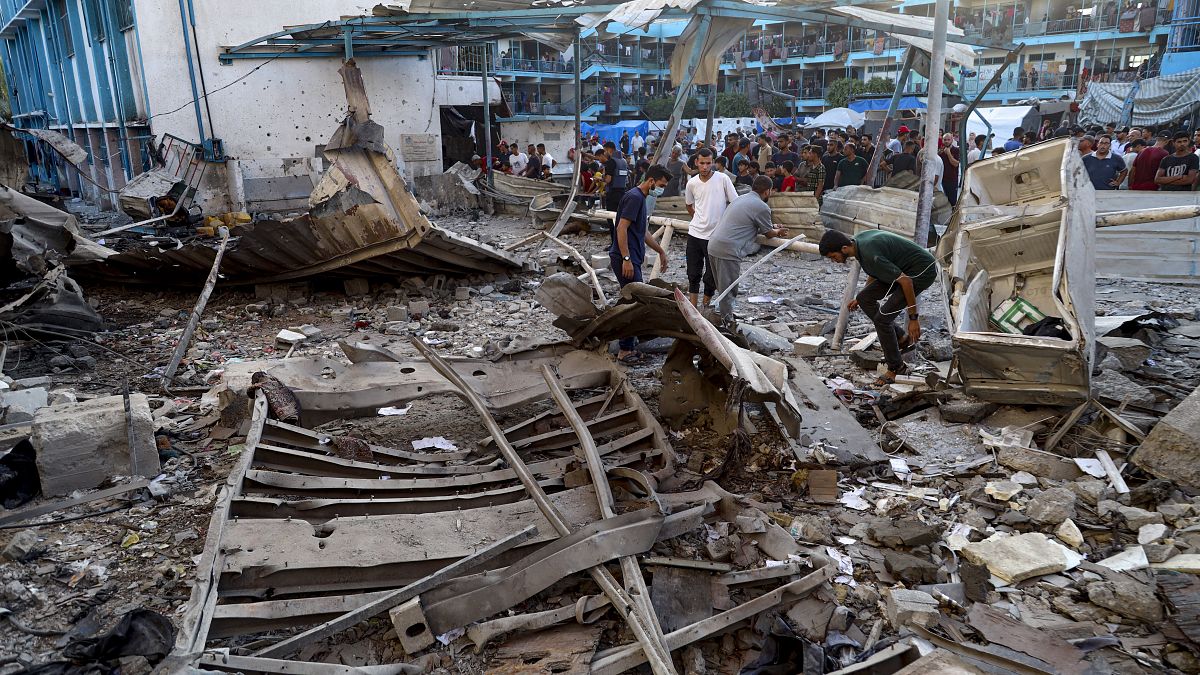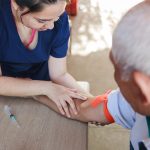The displaced population in Gaza is currently facing challenges due to a lack of clean water and personal hygiene materials, leading to a spike in infectious diseases. The World Health Organization has reported an increase in cases of diarrhoea, chickenpox, and jaundice compared to previous years. The lack of access to cleaning supplies is exacerbating the situation, with residents struggling to afford basic items such as soap and detergent.
In a recent Israeli strike on a United Nations-run school in Gaza being used as a shelter for displaced people, at least 16 Palestinians, predominantly women and children, were killed. The attack left more than 75 people injured and drew condemnation from Gaza’s Government Media Office. Eyewitnesses reported that the strike targeted the upper floors of the school, where thousands of individuals were seeking refuge. The injured were taken to the Aqsa Martyrs hospital for treatment.
The Israeli military released footage showing troops operating in the Gaza City district of Shijaiyah. Ground fighting in the area has caused widespread displacement, with tens of thousands of people forced to flee their homes. The military displayed weapons seized from a storage facility and expressed concerns about Hamas regrouping in hard-hit areas. This raises questions about Israel’s ability to dismantle the militant group’s military capabilities effectively.
The ongoing conflict in Gaza has also led to a humanitarian crisis, with limited access to essentials such as clean water and medical supplies. Displaced residents are struggling to manage the spread of infectious diseases due to the lack of hygiene materials. The World Health Organization has noted a significant increase in respiratory infections, diarrhoea, scabies, lice, chickenpox, and acute jaundice in the region. Efforts are being made to provide medical aid, with Morocco sending 40 tons of supplies to Gaza to support emergency surgical procedures and basic medications.
The situation in Gaza remains dire as the conflict between Israel and Hamas continues to escalate. The ongoing violence has resulted in significant casualties, with thousands of Palestinians killed or injured. The airstrikes and ground offensive have displaced large numbers of people, further straining the already fragile healthcare system in Gaza. The international community is being called upon to provide support to address the urgent humanitarian needs of the population affected by the conflict.
As the conflict in Gaza persists, there is an urgent need for immediate action to address the humanitarian crisis affecting the displaced population. The lack of clean water, hygiene materials, and medical supplies is exacerbating the spread of infectious diseases, putting vulnerable individuals at risk. International support and assistance are crucial to provide relief to those affected by the conflict and prevent further loss of life. Efforts to provide essential resources, medical aid, and humanitarian assistance must be prioritized to alleviate the suffering of the displaced population in Gaza.











